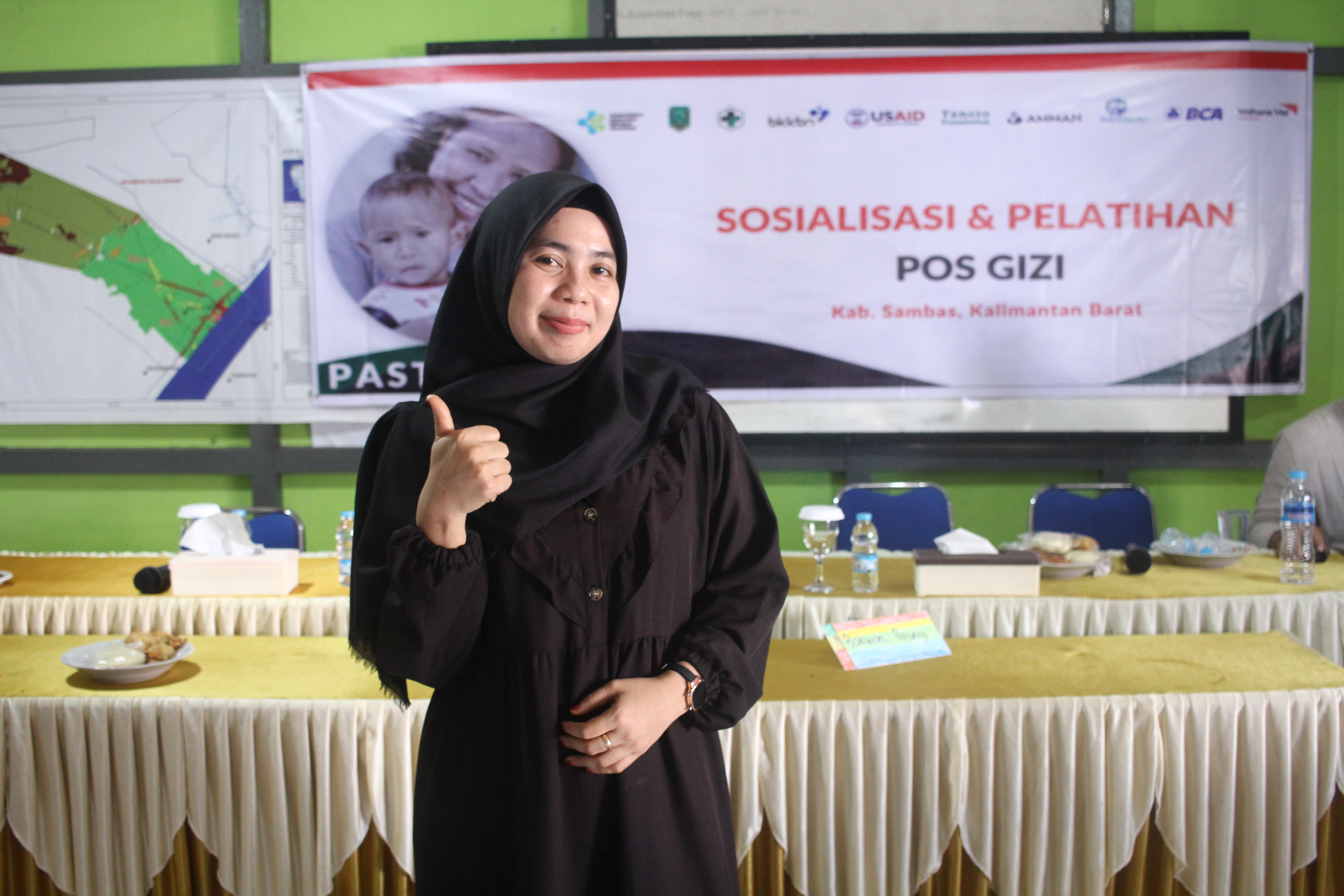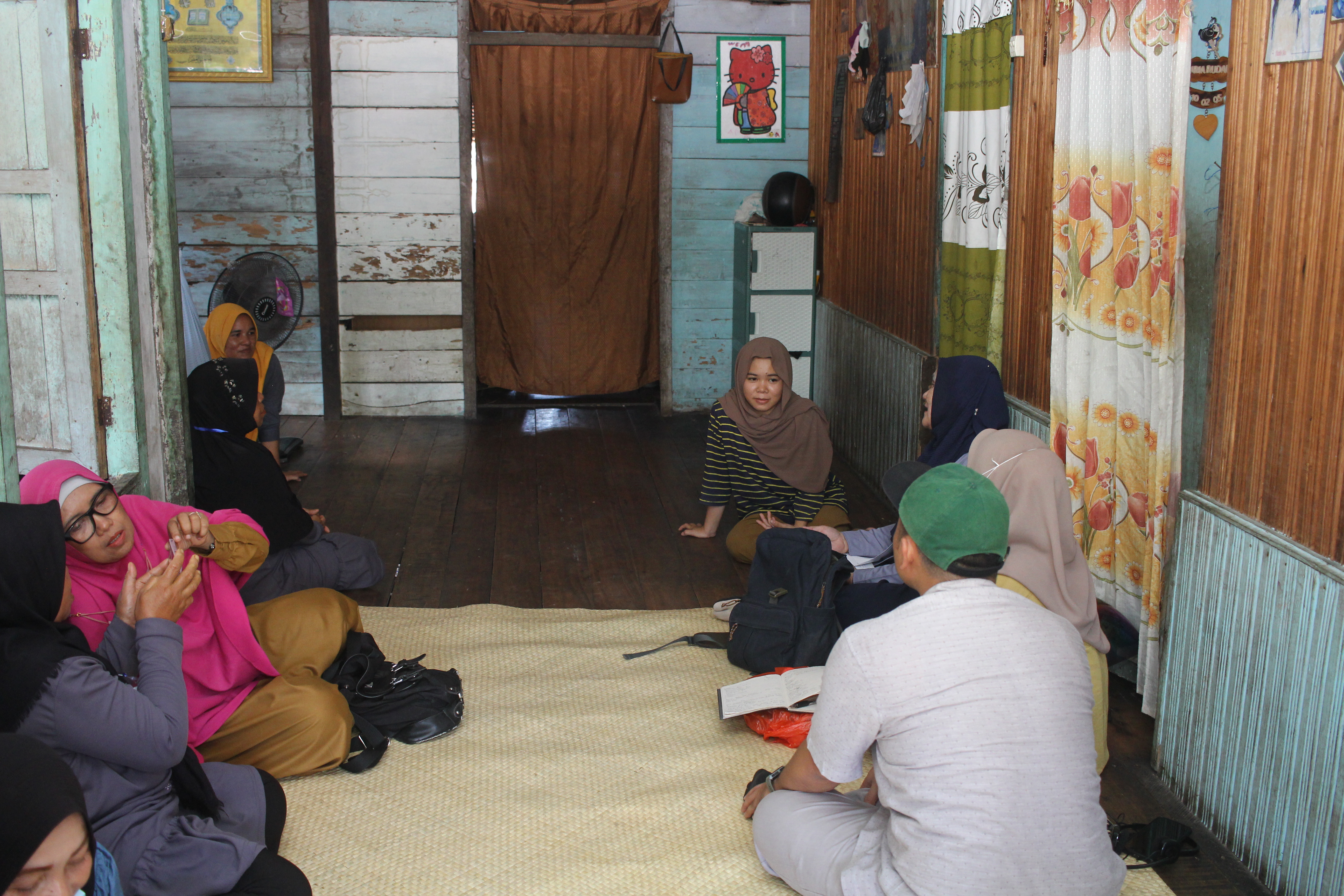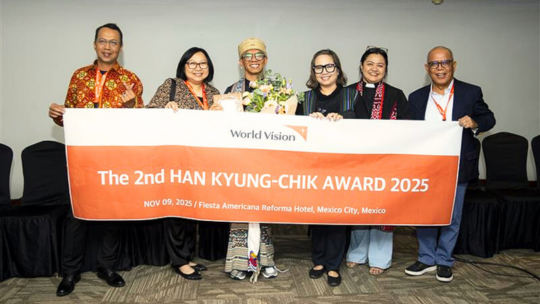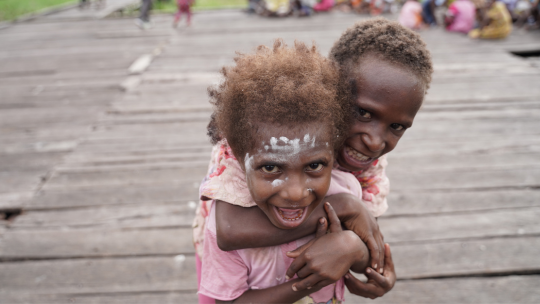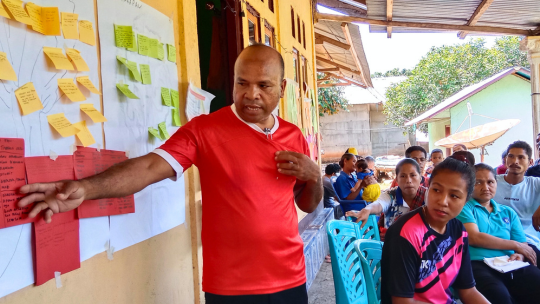Pos Gizi DASHAT: How PASTI improves the capacity of family support teams to improve child nutrition
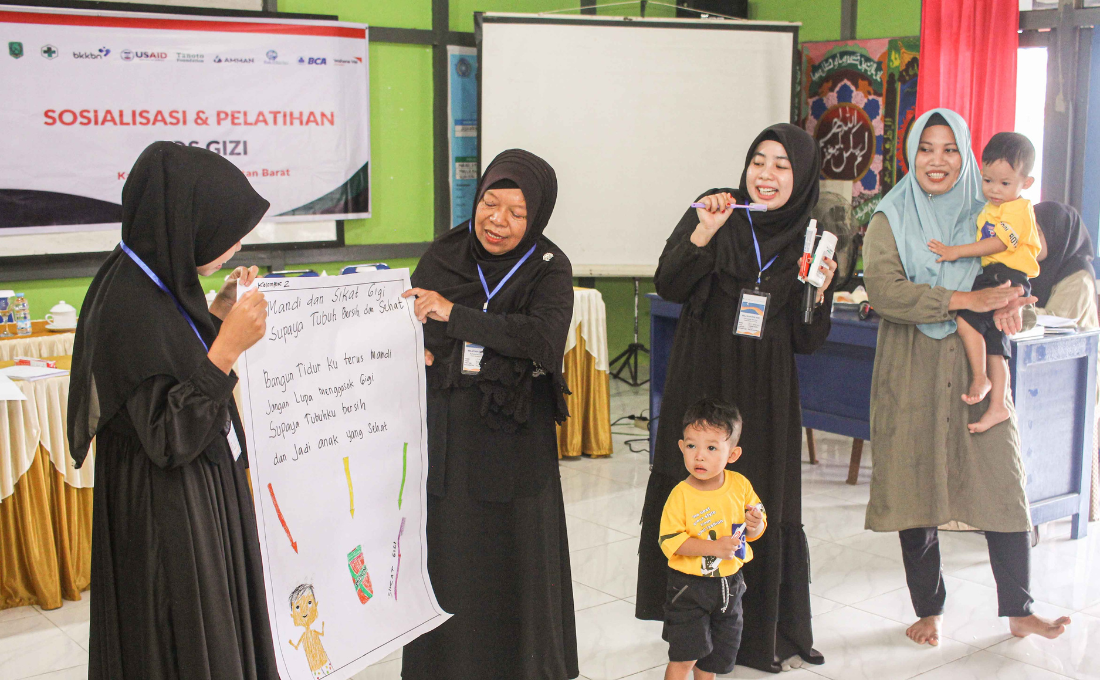
The problems of stunting and poverty are often seen as one and the same. Children from underprivileged families are often considered more prone to stunting. In addition, there is an inherent stigma that underprivileged families do not have adequate knowledge. This includes knowledge of the importance of fulfilling balanced nutrition for children in the first 1000 days of life.
This was revealed by Desi, a member of the Family Assistance Team (TPK) in one of the villages in Sungai Baru village, Teluk Keramat sub-district, Sambas District, West Kalimantan province. The stigma and mindset of the community is often a thick wall that she and other TPK members must break through. "Children are only fed rice with soup without any source of protein," said the 32-year-old woman.
Desi poses in front of the banner of the Pos Gizi DASHAT activity facilitated by PASTI.
This reality eventually encouraged Desi to participate in the Pos Gizi DASHAT training as a form of specific intervention in accelerating stunting reduction facilitated by the PASTI Program. PASTI is a partnership program between BKKBN, USAID, Tanoto Foundation, PT Amman Mineral Nusa Tenggara (AMMAN), Bakti Barito Foundation, and PT Bank Central Asia Tbk and supported by Wahana Visi Indonesia as the main implementer and Yayasan Cipta as a sub-implementer. PASTI aims to contribute to the acceleration of stunting reduction and improved nutritional status in the government's priority provinces by 2026. PASTI contributes to 4 provinces which are Banten, East Java, West Kalimantan, and East Nusa Tenggara.
One of the activities carried out by PASTI is training TPK with Pos Gizi DASHAT material. Pos Gizi DASHAT is an integration of two activities, which are Pos Gizi with positive deviance (Pos Gizi with PD) and DASHAT (Healthy Kitchen to Overcome Stunting). Both have different target categories. Pos Gizi with PD is conducted for undernourished children with intensive feeding for 10 days continuously. Meanwhile, DASHAT is given to children whose weighing results at the Posyandu do not increase (category T) with feeding carried out for a full month with a frequency of once per week. Pos Gizi with PD and DASHAT have similar intervention processes, namely feeding and food processing demonstrations.
The feeding menu is based on the concept of positive deviance (PD). This concept emphasizes the phenomenon of children from underprivileged communities who have good nutritional and health status and are different from other children.
During the three-day Pos Gizi DASHAT training, Desi had the opportunity to learn how the fulfillment of child and community nutrition can be obtained from local food ingredients that are easy and affordable. Interestingly, this knowledge was found from direct community experience.
During the training, she and the other members made visits to the homes of families with good nutritional status despite being categorized as underprivileged. Through the assessment, Desi and the team were inspired by nutrient-dense menus that had been practiced in the families they visited. Among them are rainbow fried rice, mixed curry rice, and mixed porridge as the main menu. As for the snack menu, there are vegetable martabak, dadar gulung (rolled omelet), and bakwan pelangi (rainbow fritter).
TPK Sungai Baru Village visits PDI family's house.
Desi shared that in general, these menus are the kinds of food that are quite favored by children, including toddlers. "The nutritional content is also enough to fulfill the nutritional needs of children. There are carbohydrates from rice and flour, fat from oil, animal protein from eggs and anchovies, and vitamins and minerals from vegetables," said Desi.
Pos Gizi DASHAT menu in Sungai Baru Sub-district.
For Desi, the training is a valuable asset for a TPK member like herself. Especially when she has to give proof to the community that nutritional fulfillment is not always expensive. "But how parenting is conducted with the intention and effort to provide good nutrition for their children," Desi said.
Desi preparing the Pos Gizi DASHAT menu.
In addition, Desi also assessed that the Pos Gizi DASHAT from PASTI does not only offer menus but can also contribute to shaping good nutrition behavior. The implementation is through the delivery of key messages using communication media such as posters and taglines, to community involvement in providing food menus. "Together with PASTI, the Pos Gizi DASHAT is carried out for 10 consecutive days of eating together and continued for up to 3 months in their respective homes. Funding is also sourced from the community," Desi said.
The Pos Gizi DASHAT training from PASTI made Desi enthusiastic. As a TPK member, she also felt that the training had an impact on increasing her capacity. "Because it really helps us make menus that are nutritionally complete, easy and affordable. We now know how to take the right role as a family assistance in improving children's nutritional status," she said. In the future, she hopes to be able to practice and continue what she has learned from the Pos Gizi DASHAT training. "We need to find more varied menus, so that the targeted children do not get bored," Desi concluded.
Author: A. Adintyo (Communication Officer PASTI)

